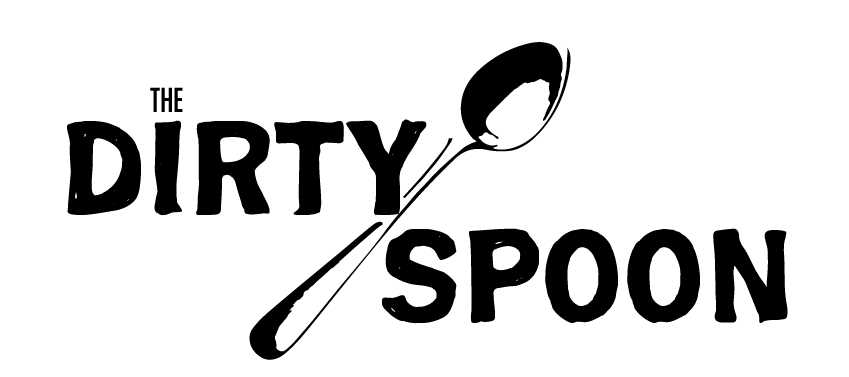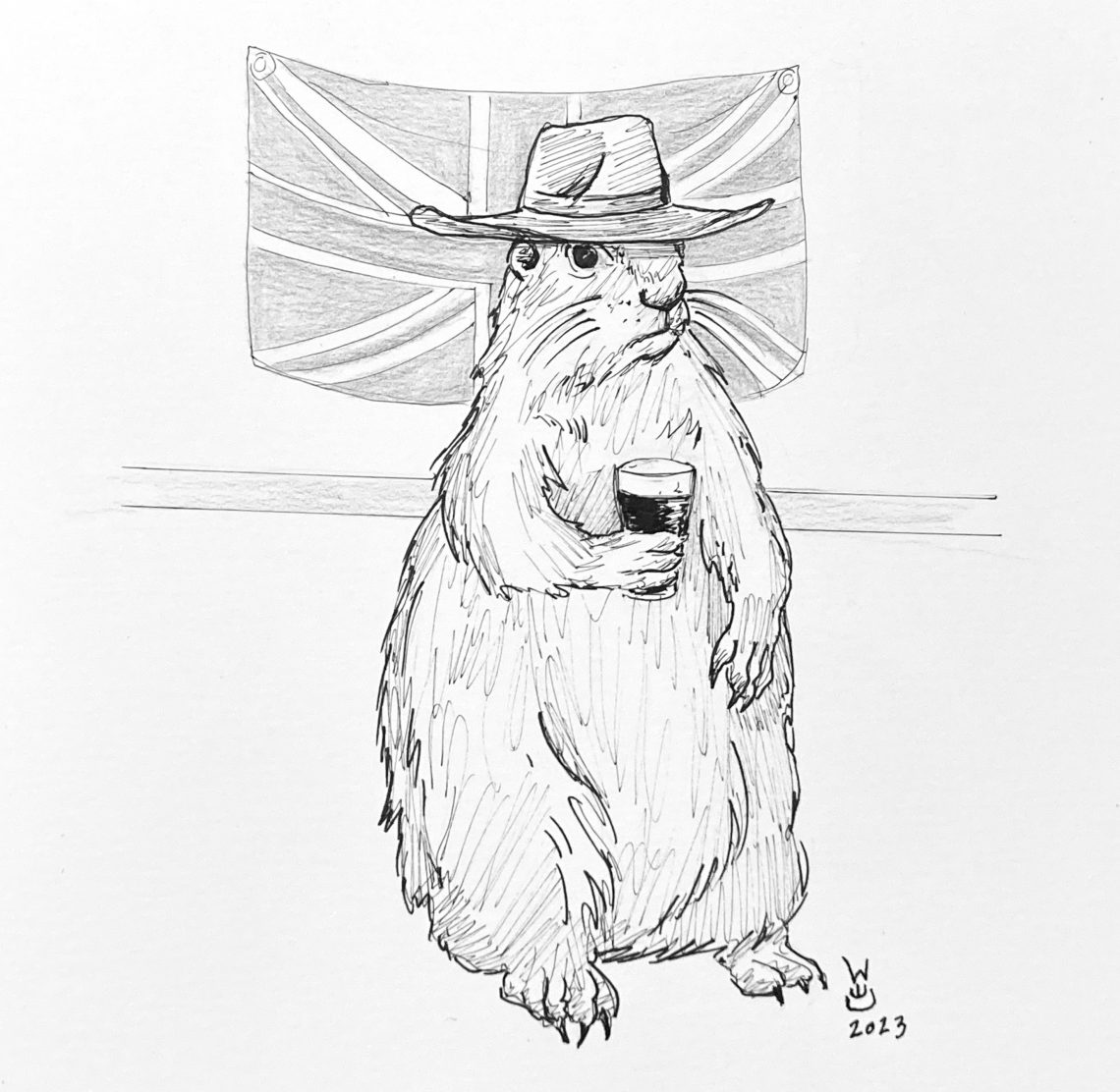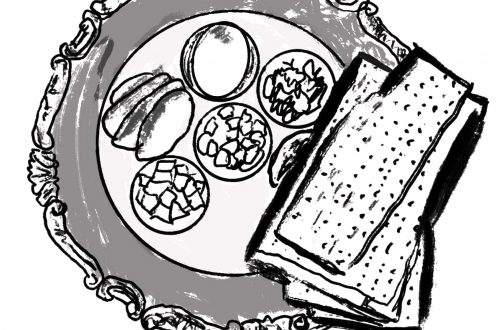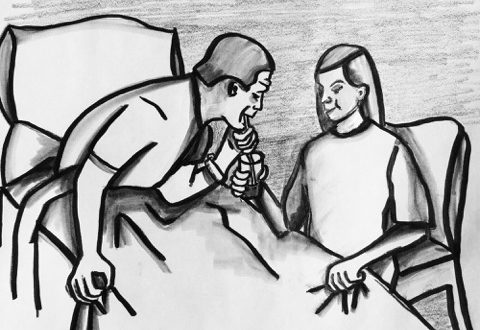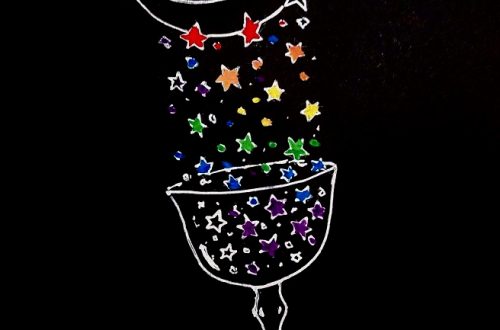by Ryan Wells
Ryan’s essay appears in episode 42 of The Dirty Spoon Radio Hour.
I embraced my new job as Ambassador. Unbeknownst to the US government, I was representing my country from behind the bar of an English pub. In 1990s pre-internet London, I provided important services for local residents like distinguishing Ohio from Idaho and revealing the pronunciation of Disney’s new film, Pocahontas. I learned during my two years as a barman (second “a” mumbled, like their “Birmingham”) that many Londoners had never actually conversed with an American. I delighted in the role, an unexpected component of my overseas experience, until one evening in October of 1995. The impromptu embassy I had established within the neighborhood pub was a pleasant, welcoming place until an irate mob gathered at the doorstep.
I had never been overseas. In college, I stopped by Ohio University’s travel abroad office, which was a room with a single filing cabinet stuffed with brochures. After sifting through a hundred with glossy photos of attractive students chatting amid 600-year-old cathedrals and requiring thousands of dollars to study in Europe, I found a program I could afford. A greyscale pamphlet offered a temporary UK work permit for $150.00. It provided a form, a London address, and about 30% confidence in legitimacy. With a blend of courage and naivete, I mailed a check.
The address, I discovered after meandering London’s urban labyrinth, led to another one-room office. Inside were job openings scribbled on index cards pinned to a bulletin board. Most positions were for handing out flyers on the street that advertised dance clubs. Through the unreliable youth hostel grapevine, I confirmed a rumor that some pubs offered jobs with accommodation included. After a brief interview secured by calling random establishments, I was mostly certain an unintelligible Scottish man hired me. My pub career had begun.
During the first few weeks, I learned about shandies, light and bitters, lager tops, and other cryptic versions of beer. I also learned I couldn’t understand anyone’s accent. Eventually, I picked up the speech patterns, sans Scottish, as well as the English style of customer service—a limit of two ice cubes for mixed drinks and complaints to be addressed with confrontation. I also deciphered oddities like making change in a system without quarters and learning “draught” was just “draft”. Eccentricities once intimidating now became part of my travel experience. I was fitting in.
The pub offered a respite from the bustle of London’s Piccadilly area. Serving both white- and blue-collar crowds, it felt like a living room, with its dark wood, carpet, and cloth furniture. Regular patrons added a layer of well-being by their dependable routines. When they arrived, where they sat, and what they drank transpired like clockwork.
As the regulars became familiar with me, I noticed reactions that progressed through stages. First, everyone remarked on my pronunciation of words like “tomato,” “lager,” and “battery.” Then, I got to witness multiple attempts at American accents. Most sounded like Robert DeNiro just after a wisdom tooth extraction. Eventually, deeper conversations arose. Talks of Greyhound buses and how a forward pass works graduated to subjects such as Utah being an unconstitutional theocracy. The complex issues forced me to analyze aspects of America I hadn’t considered. Like a thesis from a high school writing assignment, my experience in a foreign country was teaching me just as much about my own.
Questions of law persisted. Quirky stories like American millionaires bequeathing estates to Pomeranians appeared in newspapers, provoking discussion. Complex legal inquiries surfaced, too. I once faced an incredulous group of law students fascinated by America’s system varying by state. They had to confirm with me that a murder resulting in the death penalty could be committed just across a state border and merely lead to prison. I verified—as much as a non-lawyer in his early twenties could—as they hopped back and forth over an imaginary line while mimicking exaggerated stabbing motions.
After a few months, I began noticing a downside. Every so often, an archetype surfaced that tarnished my diplomatic experience—the Anti-American. Many Londoners grumbled about tourists or bemoaned American foreign policy, but a small contingent openly despised Americans. I first discovered this jaded persona when overhearing two young English couples espouse their hatred for anything stateside. They reviled the politics, television shows, music, clothing, hairstyles—possibly the letters “U” and “S”—anything. The group was unaware of my nationality, so I witnessed their discussion unadulterated. It was pure vitriol.
Anti-Americans rarely confronted me directly, but it happened. I had backup, however, provided by the regulars. I was part of the family. Any rare malicious attack by a stranger was met with a quick defense; I was their American. On that late October afternoon, though, I found myself on my own.
I had run some errands on that Tuesday afternoon. I returned to the pub, also my home, about twenty minutes before my five o’clock shift to change into my white shirt and black tie. Instead of the usual smattering of ten or so people, I weaved through two dozen businessmen keeping the afternoon barman busy. I returned from my room upstairs and clocked in for what I thought was just an unusually busy shift.
The crowd had already doubled. I immediately started pouring round after round, no time to ask the other barman what was happening. I didn’t see a single regular, either. Soccer matches typically drew crowds, but the time of day didn’t make sense. Yet everyone focused on the mounted television. I also caught pieces of conversation mentioning “going mad,” “falling apart,” and “America”. While drawing a pint of bitter, I glanced up to see everyone watching a courtroom scene. As I set the pint on the bar, an image answered my question, yet provoked many more. O.J. Simpson.
Why was a crowd of Brits fixating on the O.J. trial? Over the past year, I had seen a handful of brief news articles. Occasionally, I fielded questions while working, but there was little interest. No one in the UK knew who O.J. Simpson was and I didn’t follow the story. Yet the pub was packed with locals who left work early to witness the verdict. I then realized I was facing my nemesis, the anti-American, as a collective mob.
Their interest didn’t lie in this man’s fate. They wanted to watch the system fail. Everyone in that pub wanted to see the most powerful country in the world—the nation that inundated their city with its rude citizens, that churned out movies with simplistic plotlines, that marred the landscape with fast food franchises, that absurdly called lifts “elevators”—fall apart.
The desire for schadenfreude united this bloodthirsty mob. Everyone engaged in the “Could he really get off?” discussion. I also overheard multiple anecdotes of incidents with ill-mannered Americans; everyone had their own story of some affront caused by a bloody Yank. A man by the TV reached up and maximized the volume while another admonished the crowd for talking. They quieted and the verdict was read. Eruption.
Drinks flowed in the suddenly raucous atmosphere. The mob had gotten what it wanted. My homeland had lost its way and this horde was ready to celebrate. Thankfully, no one had detected my accent in the environment too busy for chitchat. I spoke curt phrases and avoided eye contact. The approach worked until that odd fraction of time when even boisterous crowds can briefly fall silent. At that moment, while making change—a distinct “R” sound in the word “thirty”, perhaps—my conspicuous American twang popped out like a prairie dog wearing a 10-gallon hat.
The man looked up from his change in disbelief. He stammered, “Are you—American?” I rapidly considered my options: claim Canadianism, trial-test my marginal Irish accent, or face the mob. His question grabbed the attention of half the pub and they all stared at me expectantly. I confirmed. Like a fireworks show that has slowed its pace, causing brief suspicion it might soon be over, but a sudden burst excites anew, the place again exploded.
“The barman’s American!” His bellow engulfed the entire establishment. A flurry of condescending remarks about America “losing the plot” and “having a good run” cascaded around me. Jokes about booking trips to the US with ex-wives made their rounds while “Check his permit” and “Call immigration” got some laughs. I continued serving drinks stoically as hostile individuals attempted to provoke a reaction. Me working behind the well-lit bar turned into their vaudeville entertainment.
I didn’t react. I can’t claim it was a strategy since I didn’t know what else to do. I just continued serving, but it was difficult. Each transaction came with a caustic remark or condescending tone. The mob had roiled an anger in me, causing the desire to counter their mocking behavior with my own. They were seeking an excuse to elevate the situation, a reason to do more than merely hold their torches and pitchforks. They wanted to break down the walls of my embassy’s goodwill. They nearly did.
Gradually, the mob dispersed. Visiting the pub on a weekday may have been a rare event for many, so the gathering didn’t become an all-night affair. Finally, some regulars arrived, occupying their usual seats at the bar, bewildered. They ordered a round, curious about the unexpected crowd. I recounted the basics. They were as surprised at the event as I was, commending me for surviving. They affirmed that, had they been able to fight their way to the bar, they would have defended me.
I answered a few questions for them about the trial as best I could. The subject soon turned to something else, probably soccer, as my fellow barman and I put the pub back to working order. One of the locals, who only drank English ale, then announced he was going to order something different for his next drink. Such a move transcended growing a mustache or attempting a new hairstyle—this was on par with trying out a new religion. After hearing my story he decided to have, for the first time in his life, a Jack and Coke. It may have been in tatters, but my embassy remained open.
Original artwork by Claire Winkler
About the Author
 Ryan Wells is a writer, editor, and regular at the public library. You may find him playing in a samba drumming group on occasion. He has travelled a bit, worked on an array of diverse projects, and has a knack for winding up in unusual situations. He may share some of these tales and other thoughts at his new website, ryanwells.xyz. You can also find him on Twitter at @ofRiceAndMen. He resides in Cleveland, Ohio, the city that sleeps, yet fitfully.
Ryan Wells is a writer, editor, and regular at the public library. You may find him playing in a samba drumming group on occasion. He has travelled a bit, worked on an array of diverse projects, and has a knack for winding up in unusual situations. He may share some of these tales and other thoughts at his new website, ryanwells.xyz. You can also find him on Twitter at @ofRiceAndMen. He resides in Cleveland, Ohio, the city that sleeps, yet fitfully.
